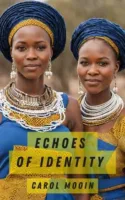International Mother Language Day always strikes a deep chord with me. It’s a day that celebrates the rich tapestry of languages that form the very backbone of our diverse cultures and identities. Let me share a bit about how this day came into being and why it resonates so profoundly with me as a Black South African with a vibrant linguistic heritage.
The story of International Mother Language Day begins in Bangladesh. In 1999, recognising the critical importance of linguistic diversity and cultural heritage, UNESCO endorsed this day. Since 2000, it has been a global observance, highlighting the need to preserve and respect the myriad languages that make our world so wonderfully diverse.
This recognition hits home for me as someone who grew up in a household where multiple languages weren’t just a norm but a celebration of our rich cultural heritage. Thanks to my Xhosa-speaking mom, I spoke IsiXhosa, while my dad’s Tswana roots added another layer to our family’s linguistic landscape. While my fluency in IsiXhosa could be better – something I’m actively working on – my family’s sheer variety of languages is a source of pride.
In our family gatherings, it’s common to hear a mix of IsiXhosa, Tswana, and even Afrikaans – a testament to our nation’s complex and intertwined history. The beauty of South Africa lies in its linguistic diversity. With eleven official languages, including English, Afrikaans, and various indigenous languages like Zulu, Xhosa, and Tswana, our nation is a melting pot of linguistic expressions.
The most widely spoken languages in South Africa paint a picture of our historical and cultural fabric. IsiZulu, predominant in KwaZulu-Natal, is the voice of the Zulu nation. IsiXhosa, my mother tongue, has its roots in the Eastern Cape and is integral to the Xhosa people’s identity. Afrikaans, a Creole language born from Dutch, speak of our colonial past and have evolved uniquely in South Africa.
International Mother Language Day is more than just an observance for me; it’s a personal journey through the languages that have shaped my identity and the cultural landscapes of countless others. It reminds us of language’s vital role in connecting us to our history, culture, and each other.
In celebrating this day, we’re not just honouring the words we speak; we’re embracing the diverse voices that tell the story of humanity in its richest form. It’s a call to action to preserve these languages through writing, speaking, and teaching, ensuring that our linguistic heritage continues to thrive for generations.
How does your mother tongue shape your identity and connect you to your cultural heritage?



